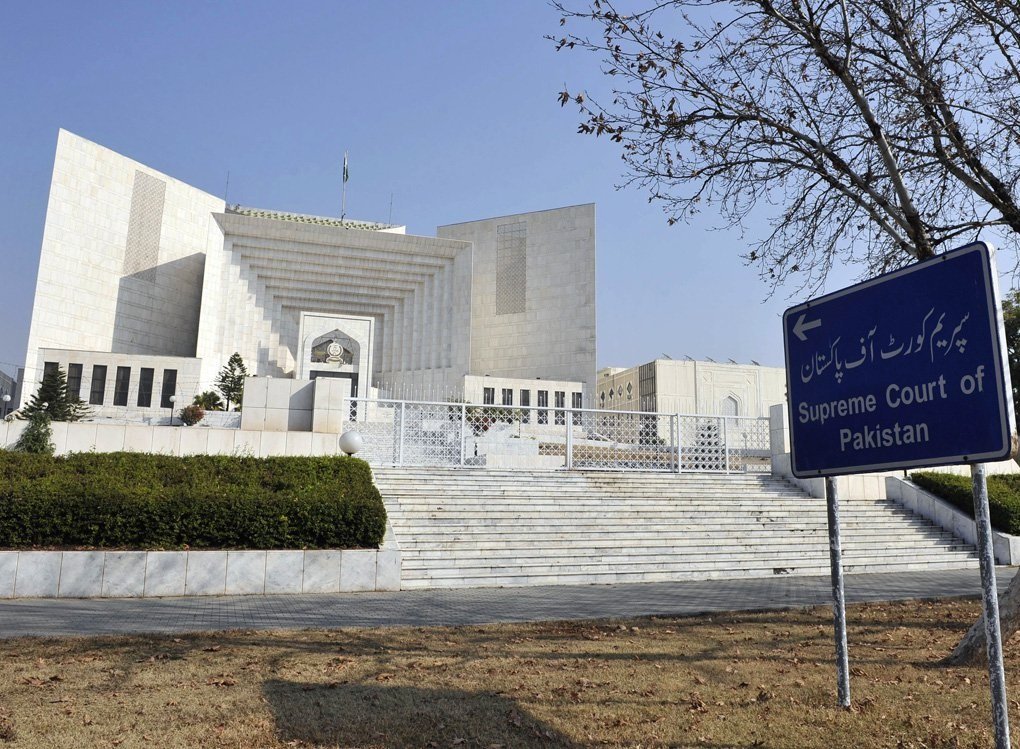
The presidential reference seeking the Supreme Court’s guidance about conducting the upcoming Senate polls through an open ballot has put the SC in a difficult situation, particularly after the promulgation of a presidential ordinance in this regard.
President Dr Arif Alvi on Saturday signed the Election Amendment Ordinance 2021 under which the upcoming Senate elections can be held through open ballot.
The ordinance will enter into force with immediate effect but its enforcement will be subject to the outcome of the presidential reference, seeking the SC’s opinion if the Senate elections could be held through open ballot without any constitutional amendment.
A five-judge larger bench, presided over by Chief Justice of Pakistan Gulzar Ahmed, will resume today (Monday) hearing of the presidential reference asking the court to guide if the Senate election should be held “under the Constitution” or under the Election Act 2017.
However, a number of opposition parties, legal experts and media channels accused the government of “mala fide” and claimed that the government has tried to pressure the SC through the ordinance.
They even urged Chief Justice of Pakistan Gulzar Ahmed to take notice of the ordinance which is subject to the outcome of the court’s decision.
Some government officials, however, said they had no option but to promulgate the ordinance before issuance of the Senate elections schedule which is likely to be announced on February 11.
They said the SC could not decide the reference on time as the larger bench was not available for two weeks. One section of lawyers said that instead of promulgating the ordinance, the government should have requested the larger bench to pass an interim order.
Guidance may be sought from the bench even in the prevailing situation, they said. Sindh High Court Bar Association (SHCBA) President Salahuddin Ahmed described the presidential reference as “completely unprecedented' Talking to The Express Tribune, SHCBA president contended that there is no other example of introducing legislation conditional to the opinion of the court in a pending case.
"It has effectively dragged the court into the legislative process. It clearly shows that the reference itself was filed by the president to lend support to the government’s intended legislative initiatives," he said.
Ahmed said if the president had moved a reference in the SC, basic respect for the judicial institution demanded that he waited for the result of the reference before issuing any legislation on the subject.
"Moreover, the president’s power to promulgate ordinances is limited to emergent circumstances necessitating temporary legislation with a life of 120-days.
“Using this power with barely a month to go before Senate elections and when the president had himself prorogued the parliamentary session only 2 days ago is a clear display of mala fide."
Ahmed said the Election Act 2017 is an expression of the parliamentary will and clearly mandates secret balloting in the Senate polls.
He said if any change to the Election Act 2017 was required it should have been placed before the parliament.
“Using the ordinance-making power to temporarily suspend the parliamentary will and then placing the ordinance for approval at the end of the 120-day period before the same senators — elected through this amended procedure — amounts to making a mockery of the parliament and its legislative process.” The SHCBA president said the ordinance also shows the utter confusion within government ranks.
It first moved a reference to the SC to ask whether changing the Senate election procedure to open balloting required a constitutional amendment.
“Without waiting for an answer, it then proposed a Constitution Amendment Bill, thereby acknowledging that the Constitution requires secret balloting.
Now it has again reversed the course and has issued an ordinance mandating open balloting," he said. He demanded that out of respect for the SC and the parliament, the ordinance should be withdrawn.
Attorney General for Pakistan (AGP) Khalid Javed Khan is still arguing the matter before the SC larger bench and counter arguments are still awaited.
Lawyers, who witness the proceedings of the presidential reference case, believe that the bench has divided views on the matter and one cannot predict the outcome of the case.
Earlier, the Election Commission of Pakistan (ECP) in its reply submitted in the apex court opposed the government’s plan to hold the Senate elections through open ballot by amending the Election Act 2017.
All opposition parties and bar associations have opposed the government plan on the Senate elections.




1722415155-0/BeFunky-collage-(18)1722415155-0-165x106.webp)
1717051338-0/BeFunky-collage-(76)1717051338-0-165x106.webp)

1732000005-0/Express-Tribune-(2)1732000005-0-270x192.webp)










COMMENTS
Comments are moderated and generally will be posted if they are on-topic and not abusive.
For more information, please see our Comments FAQ